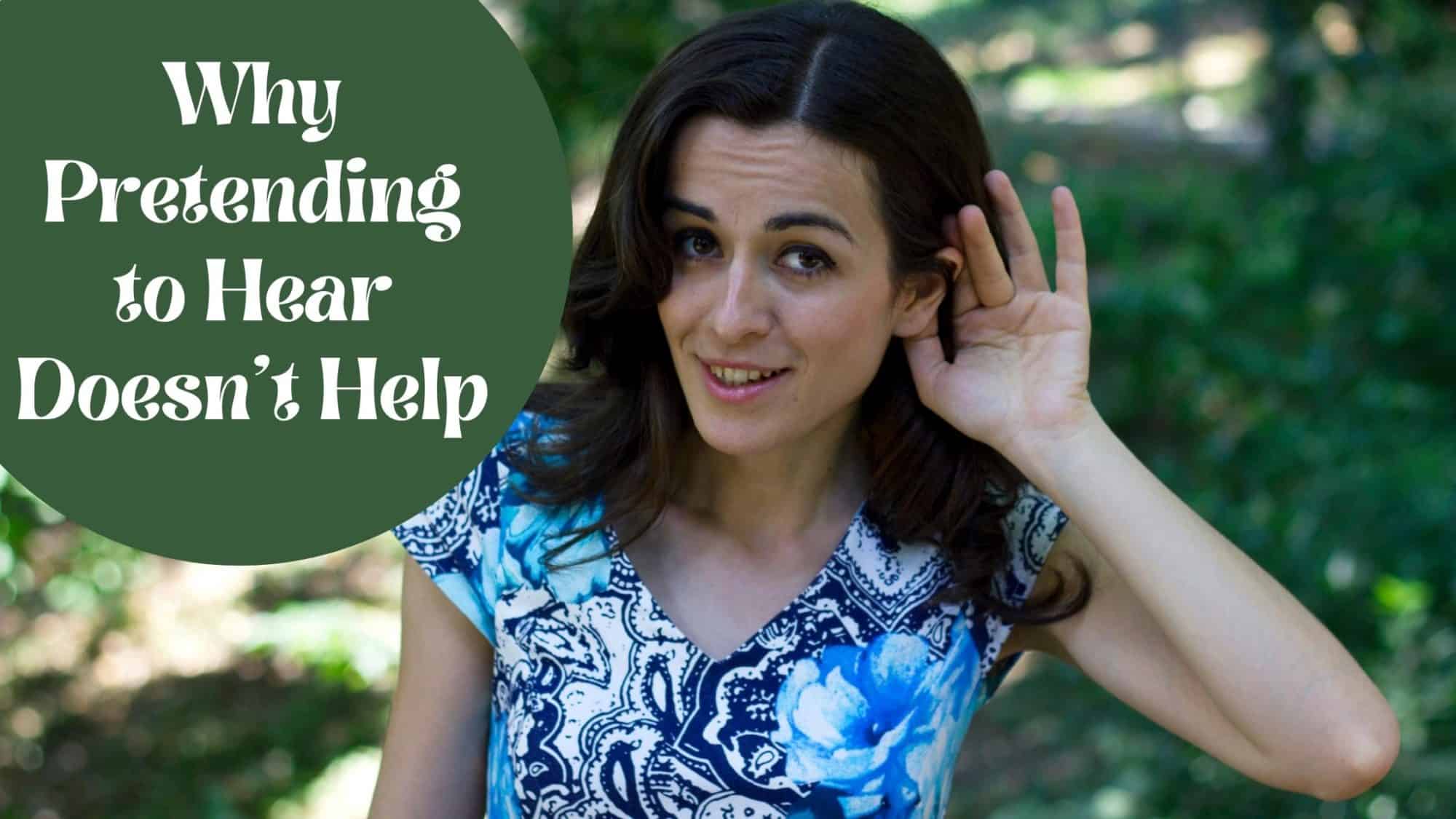- The Connection Between Hearing Loss and Dementia - July 30, 2024
- The Advantages of Rechargeable Hearing Aids - July 16, 2024
- How to Enjoy Music Festivals While Protecting Your Hearing - July 3, 2024
It takes a great deal of courage to confront hearing loss, despite the fact that it’s a common issue afflicting many Americans. More than 446 million people worldwide experience disabling hearing loss. In the United States, one in eight people display hearing loss in both ears.
Despite the ubiquity of hearing loss, we’ve all pretended to hear and understand what someone is saying when we absolutely didn’t. People with healthy hearing do it all the time, too! And why? Well, one chronic feature of the human condition is to avoid uncomfortable situations. We individually avoid confrontation, even in situations as mundane as not hearing someone clearly in everyday conversation. But, pretending to hear when we don’t is a risky gamble. Sure, there’s a chance that you can coast through an uncomfortable moment, but there is always the potential outcome of landing yourself in an even more uncomfortable moment of embarrassment when you’re found out. And that can be hard to come back from.
Why do we pretend to hear?
There are loads of reasons why we avoid uncomfortable moments. Taking the easiest route is coded into our DNA. Our bodies themselves learn to operate in the most efficient and comfortable manner — it’s part of our evolutionary history! It can be difficult to swim upstream and go against this fundamental operating system within us by directly calling attention to a problem.
We also pretend to hear because we are pack animals and our need for social acceptance leads us to make those around us comfortable. Instead of interrupting your conversation partner and throwing a wrench in friendly dialogue, we assume responsibility for their ease and nod along so that we don’t make any waves.
But what happens if it backfires?
We can coast along with smiles, nods, and a ‘yes’ here and there for some time. But sooner or later, the jig is up. Have you pretended to hear something and suddenly the animated face of your conversation partner becomes…confused? It’s happened to most of us! It’s the ultimate cringe moment and you’re left scrambling to try and gloss it over. Maybe you’ve been left with feelings of shame or embarrassment. Maybe you’ve left a party or avoided that person so you didn’t have to face them again. Is that really a better solution than simply saying, “I’m sorry, but it’s so noisy in here. Can we continue this conversation in a quieter place?”
What you can do instead of pretending to hear
A useful way to prepare for situations where you have to interrupt feelings of ease and comfort in order to advocate for yourself or call attention to a problem is by devising a strategy in advance. Imagine that you are in a situation where you cannot make out what someone is saying. In the moment, stress might coerce you into pretending to hear them. However, instead visualize yourself saying “I can’t hear you very well right here. Can we go somewhere quieter to continue our conversation?” Practice that scenario a few times in your head until you feel comfortable with it.
The next time you’re in the situation, you’re more likely to address the problem, rather than pretending it isn’t happening.
What if you do have hearing loss?
If you have hearing loss, you probably find yourself in this situation more often than people who don’t have challenges hearing or understanding conversations. That’s totally normal. Like we said earlier, a huge number of people experience hearing loss, so you are not alone.
You might practice your own strategy for resolving problems hearing conversation that includes disclosing your hearing loss. Only do this if you feel comfortable and if this is a step you are ready to take. It is important to acknowledge that disclosing hearing loss for the first time can be scary and intimidating. But that doesn’t mean you shouldn’t do it! Being wired to avoid feeling uncomfortable makes doing anything for the first time a daunting action to consider. But the truth is that with practice, disclosing hearing loss gets easier and easier over time.
Your statement when you’re having trouble hearing in conversation might be something like, “You know, I have some hearing loss and I’m having trouble understanding you right now.” It might be that the person you’re speaking with will be able to speak more loudly or better enunciate their words. Or, you can suggest finding a better place to have your conversation. Letting them know about your hearing loss enlists their help in finding the best solution for both of you.
Try intervening in hearing loss
Living with challenged hearing can be very difficult. But, it can be easier if you find the right hearing loss solution for your life. Our team of hearing health professionals are eager to get you started on a path to an enhanced hearing experience. Contact us today to schedule an appointment!

